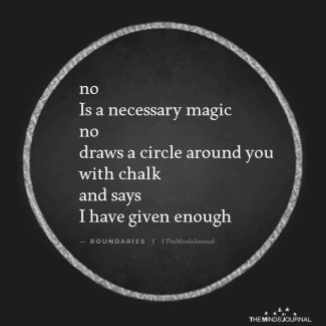Don’t worry; most people haven’t even looked at the list since January 2.
Need help in getting things crossed off that daily get “shit” done list? You know, the one pinned up above your desk. The one that gives you anxiety when you go to bed at night. You need a shift.
I’m talking about a big shift, something that really moves the needle. Goals that need time and a more planned approach. The basics of goal setting are easy:
1. Set the goal
2. Identify the results for success
3. Take the steps to accomplish it
Ha! Not so easy. Especially with all the distractions we now face every day. Specifically, it’s the seemingly urgent day-to-day things that swamp us. Moving toward larger goals often seems impossible. How will you ever find the time to get to them?
Change The Time
We are all aware that we have a finite amount of time in our days. So, if we can’t go out and get more time, then the secret to improving productivity must be to change how we spend our time.
How often have you said yes to something that you shouldn’t have?
Have you been focused on a goal but been sidetracked by less important tasks?
Are your days filled with busy work, “putting out fires,” and no progress toward your biggest plans?
It’s a common small business owner’s story, and you aren’t alone. You are the captain of a big and busy ship – so much to navigate and manage, and it all falls on your shoulders.
The key to getting ahead and seeing the results you want is setting clear goals and focusing on getting them accomplished. And watch out for those time vampires! They’ll suck your time right out of you.
Step 1-Using The Massive Power of “NO!!!!!”
Here’s the first step to staying productive and achieving your goals.
Say “No” more. That’s the start.
“No” is a powerful word and one that you need to embrace if you want to be successful. It can make you feel empowered, help you achieve your goals, and stay productive. I find it has improved my mental health. I don’t feel as frantic or busy, or stuck doing things I would do because I felt obligated but hated doing.
Saying no is difficult for some people because they are afraid of what others will think or do if they say it. They feel bad that they might be letting others down. Once you recognize this fear within yourself, you can take control over situations by saying “no” in a way that is respectful. You’ll find that others will respect your
decision and may even be more likely to help you out in the future.
The best way to say no is to simply say it. It’s a complete sentence.
You can add “No, thank you” if that is necessary, but other than that, “no” stands alone.
You especially don’t need to add “I’m sorry” or any justification or reason. It is a complete sentence.
Be confident, and don’t let others pressure you into taking on more than you can handle (or want). If they push back or try talking you out of your decision, then that’s a sign that they may not be the right people for supporting the goals you have in your business. There is no room to feel guilty for focusing on what YOU want and need to accomplish instead of someone else goals.
Step 2- Shorten Your To-Do List
Once you start saying no, it opens time in your day for more important tasks, gives room for others to rise to new opportunities, and increases your productivity.
Start with a list of the tasks that you do that are repetitive, you don’t like, or that someone on an hourly wage could incorporate into their day.
Delegate these tasks to someone else on your team or family members. Explain exactly what you want the results to be, give them the information they need to do it, and let them do it. It’s important to give yourself a pep talk here. Other people might not
do it the way you would do it. Take some deep breaths- you must be okay with that.
Whichever way they complete the task, be clear on the results you expect and establish a plan for how you will monitor their success. It might mean providing you with a weekly report, posting results for the team, and hitting sales targets or cost percentages. Delegation does not mean elimination; you still need to monitor progress, but that takes far less time than doing it yourself.
By delegating and giving people you trust the permission to make the decisions and take responsibility, it will empower them. You will learn new information about team members and notice what cream rises to the top. Delegating to people you trust can eliminate a lot of the “busy-ness” you face every day.
Step #3: Focus on The Right Things
Goal setting can be a difficult task for many people. It’s even more challenging to work on goal-related tasks when you’re setting goals that are vague or not specific enough.
It’s always a good practice when starting out with something new to start off slow. Set goals that are smaller instead of diving right into the deep end with bigger ones. This allows people who may lack motivation an easier time staying on track because they will feel like they’re progressing and achieving their goal after completing these “smaller” actions – this makes them want to continue working hard at achieving their bigger goals.
Your first order of business is to write your goals down. To set better goals, it is helpful to think about your goal from these perspectives:
- Goals need to be measurable. What does success look like to you after completing the goal? What are the results that make it a success? Make it quantifiable so that there is no grey area about whether you completed it. No matter how big or small your goal is, it’s important for you to have a goal that can be measured so that you know whether you are making progress.
- Repeat successes. Is there something that worked well in the past, a system you set up, a marketing campaign you deployed, a schedule you adhered to… if something brought you the results you wanted, then plan to repeat it.
- Categorize your goals – consider the goals for your business, but don’t leave out other important aspects of your life. What are your goals for your family/relationship, your health, and your finances? Personal goals might include things like losing weight or learning a new skill, professional goals could be things like setting sales targets or hiring a manager, and financial goals could be things like saving for a house, taking a vacation, or paying off a debt?
I Just Want To Get To Done
Once you have written a list of your overall goals and the WHAT of goal setting, it’s time to work out the HOW.
How will you accomplish them? Write down all the things that need to be done to get to the goal. You can make this as detailed as you would like. I like it super detailed because then I have more things to cross off the list as I accomplish them. It’s small victories that help to keep me focused and motivated. Make sure to celebrate small wins!
You also want to set a rough timeline. There’s the WHEN. Add dates to various aspects of your “how list” so that you know when
a target is due. When you make specific plans like this, it’s easy to see progress.
And don’t forget WHO. Your lists likely have items on them that will not need to be accomplished by you. Opportunity for more delegation! WHO can accomplish various steps towards the goals?
Your goals may seem overwhelming and daunting or maybe even unachievable at first. When you break them into smaller chunks with action items and deadlines, then each smaller item is doable and moves you forward toward reaching your ultimate goal.
Is It A Writer-Downer?
Write down your goals and keep them somewhere visible. Mine are up on my office wall, I see them several times a day, and it provides energy and motivation. I break it down into a weekly to-do list – what do I want to accomplish this week, and a daily to-do list that is even more itemized.
When I make these lists, I refer to my overall Goal list. Something each week moves me towards them. Be very careful that your daily and weekly lists don’t get filled up by the things you were meant to delegate or say no to, you have limited resources. It requires constant vigilance.
Great Resource- One of the main tools I use to stay focused and keep my goals and schedule in check is The Best Self Journal. It has everything you need to get up every day and crush it at work and in your personal life. You can check it out on Amazon HERE.
Step #4: Accomplish the Goals
Now that you have cleared space in your days for more important tasks, you have a list of goals you want to reach and the steps
needed to accomplish them, you need to act. This is where most people lose steam. To increase productivity, you need to do something, even small steps towards small goals.
Block large chunks of time where you turn off email and the phone and sit down to focus on taking care of the things that will get you closer to accomplishing your goals.
There are a few things you should keep in mind:
- It’s important to take action and stay focused on your goal(s). I read a great proverb once, “You’ll never plow a field by turning it over in your mind.” You have to move forward, even in small, incremental steps.
- Just do the next thing. Many people spend a lot of time thinking things over, trying to play out the entire plan ahead of time. All you need to do is the next thing. What’s the next item on the list? Make progress, and in the long run, all those single items will get you to the end goal.
- You need to stay productive, but not at the expense of your goals. If something you do doesn’t help you reach the goal, then it shouldn’t be done (busywork/noise). There are others who can assist you in reaching your goals. Do not get distracted.
- Focus on one task at a time. This will help keep you from getting sidetracked and ensure that you’re making progress towards your goals. Multitasking can be great for some things, but when it comes to being productive, it usually isn’t very effective. You’ll end up wasting time by switching between tasks instead of completing them.
Is There Any Good News?
The more you do this, the easier it gets. It will become easier to keep your calendar clear of obligations that you should have said no to when you have successes that bring you closer to your goals. It will become easier to delegate because you’ll know who to count on and who will follow through and get the tasks done. You will have a clear target and an itemized list of things that need to get done and propel you where you want to be, you only need to check them off one by one.
Reaching your goals, both the small and the large ones, feels astounding. It gives you even more motivation to set more and larger goals, knowing you have a plan to follow to accomplish them.
Time passes so quickly- here we are, rushing headlong into the rest of the year. How many people will say over the next few weeks, “I don’t know where the year has gone; I don’t know what I’ve been doing with my time.”
FREE Resource
Want to crush it when it comes to marketing your restaurant to increase sales?
Do a great job creating a memorable dining experience, but feel like nobody knows about you?
I’ve got an opportunity to for you my friend. Jump on a call with my head Restaurant Marketing Guru, Tara, and she will see what your doing now and tell you exactly where your gaps are that are keeping you from exploding your sales this year.
Do something good for your restaurant click the button and grab a time. She only does 3 a week so I wouldn’t wait.


Michael Thibault
Known as “The Done For You Marketing Guy for Restaurants.” International Speaker on Restaurant Marketing. Published contributing author of 4 Marketing Books. Industry expert on Google Searches and Review Sites. Recovering Independent Restaurant Owner and Caterer of over 21 years. And, all-around good guy.









